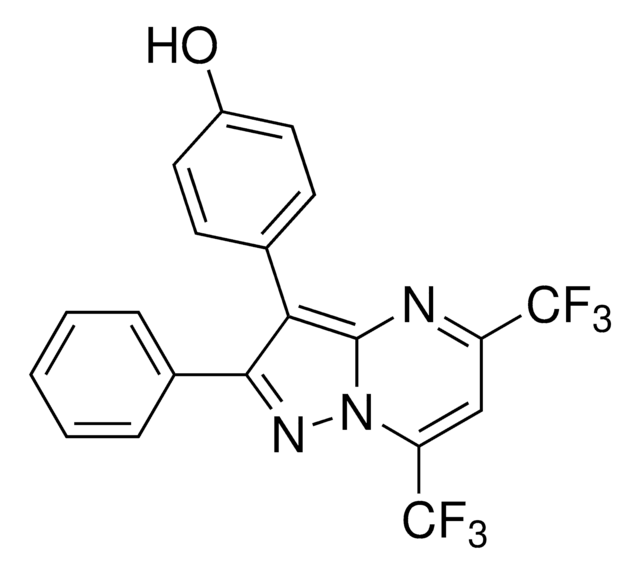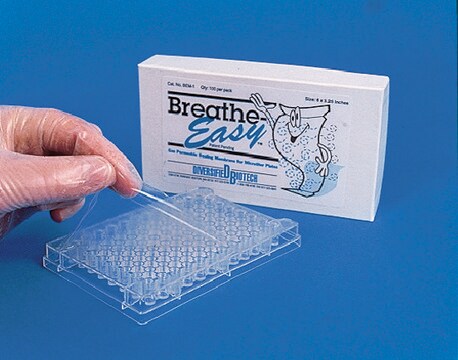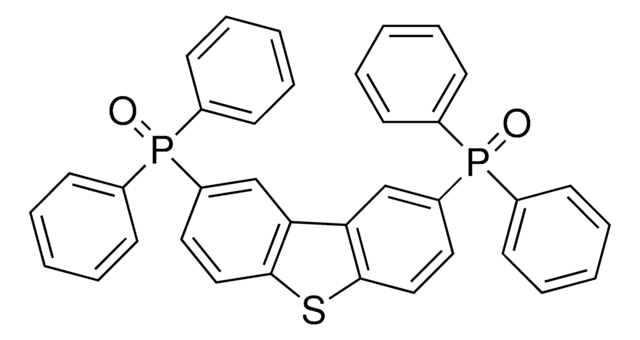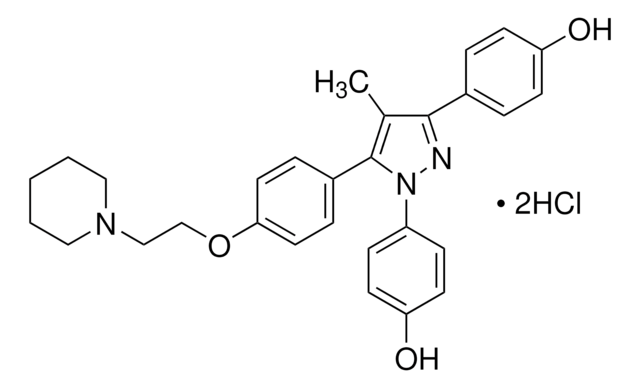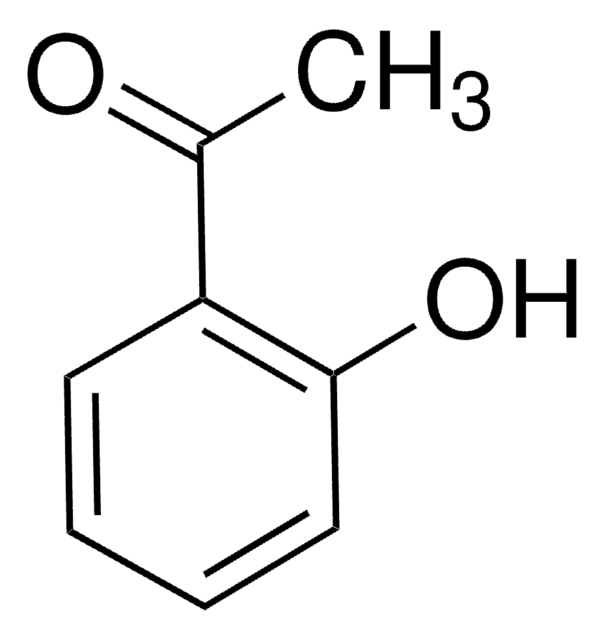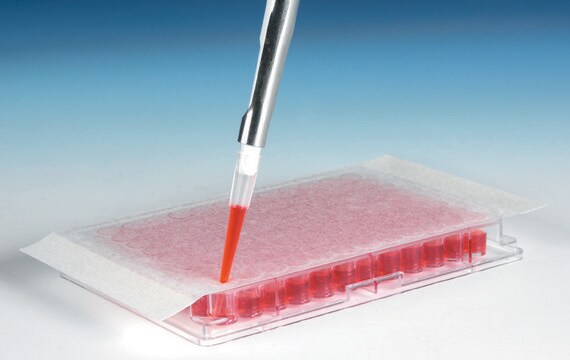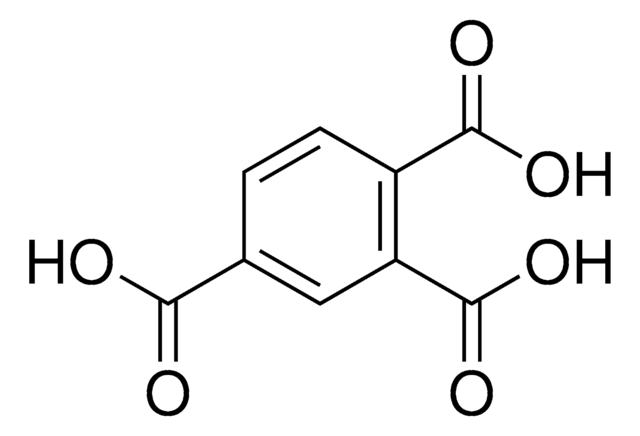H5915
2,3-Bis(4-hydroxyphenyl)propionitrile
≥98% (HPLC)
Sinônimo(s):
DPN, Diarylpropionitrile, SC-4473
Faça loginpara ver os preços organizacionais e de contrato
About This Item
Fórmula empírica (Notação de Hill):
C15H13NO2
Número CAS:
Peso molecular:
239.27
Número MDL:
Código UNSPSC:
51111800
ID de substância PubChem:
NACRES:
NA.77
Produtos recomendados
esterilidade
non-sterile
Nível de qualidade
Ensaio
≥98% (HPLC)
Formulário
powder
condição de armazenamento
desiccated
cor
white to beige
solubilidade
DMSO: 10 mg/mL, clear
Condições de expedição
ambient
temperatura de armazenamento
−20°C
cadeia de caracteres SMILES
Oc1ccc(CC(C#N)c2ccc(O)cc2)cc1
InChI
1S/C15H13NO2/c16-10-13(12-3-7-15(18)8-4-12)9-11-1-5-14(17)6-2-11/h1-8,13,17-18H,9H2
chave InChI
GHZHWDWADLAOIQ-UHFFFAOYSA-N
Ações bioquímicas/fisiológicas
2,3-Bis(4-hydroxyphenyl)-propionitrile (Diarylprepionitrile, DPN) is an ERβ-selective agonist; IC50 = 15nM. DPN protects WT and ARKO mice and significantly decreases IL-1β following LPS treatment in young adult-derived microglia. PPT (Cat. No.H6036, ERa agonist) enhances cell proliferation, while DPN inhibits it. PPT increases Bcl-2 expression, while DPN decreases it. DPN also elevates Bax expression. DPN induces a dose-dependent increase on vitellogenin synthesis. PPT and DPN are effective in dynamically, but differentially regulating intracellular calcium signaling in hippocampal neurons. DPN is more efficacious than PPT in potentiating a physiological concentration of glutamate-induced intracellular Ca2+ rise in these neurons. DPN prevents the development of prostatic hyperplasia and inflammation in testosterone-treated LuRKO mice.
Características e benefícios
This compound is featured on the Nuclear Receptors (Steroids) page of the Handbook of Receptor Classification and Signal Transduction. To browse other handbook pages, click here.
Palavra indicadora
Warning
Frases de perigo
Declarações de precaução
Classificações de perigo
Aquatic Acute 1 - Eye Irrit. 2
Código de classe de armazenamento
11 - Combustible Solids
Classe de risco de água (WGK)
WGK 3
Ponto de fulgor (°F)
Not applicable
Ponto de fulgor (°C)
Not applicable
Equipamento de proteção individual
dust mask type N95 (US), Eyeshields, Gloves
Escolha uma das versões mais recentes:
Já possui este produto?
Encontre a documentação dos produtos que você adquiriu recentemente na biblioteca de documentos.
Os clientes também visualizaram
Thomas J Lechuga et al.
Biology of reproduction, 100(2), 514-522 (2018-10-03)
Endogenous hydrogen sulfide (H2S) is a potent vasodilator and proangiogenic second messenger synthesized from L-cysteine by cystathionine β-synthase (CBS) and cystathionine γ-lyase (CTH). Estrogens are potent vasodilators that stimulate H2S biosynthesis in uterine arteries (UA) in vivo; however, the underlying
Chew Leng Lim et al.
eLife, 9 (2020-07-25)
There is strong evidence that the pro-inflammatory microenvironment during post-partum mammary involution promotes parity-associated breast cancer. Estrogen exposure during mammary involution drives tumor growth through neutrophils' activity. However, how estrogen and neutrophils influence mammary involution are unknown. Combined analysis of
L Hases et al.
Scientific reports, 10(1), 16160-16160 (2020-10-02)
There is a strong association between obesity and colorectal cancer (CRC), especially in men, whereas estrogen protects against both the metabolic syndrome and CRC. Colon is the first organ to respond to high-fat diet (HFD), and estrogen receptor beta (ERβ)
Konstantin Yakimchuk et al.
Endocrine connections, 7(12), 1472-1479 (2018-11-30)
Well-defined physiological functions of estrogens are mediated via nuclear estrogen receptors α (ESR1) and β (ESR2). With regard to hematological malignancies, expression of ESR2 has been found in both B and T cell lymphomas. In addition to endogenous estrogens or
Peiye Song et al.
Journal of experimental & clinical cancer research : CR, 38(1), 354-354 (2019-08-16)
Estrogen receptor β (ERβ) has been reported to play an anti-cancer role in breast cancer, but the regulatory mechanism by which ERβ exerts this effect is not clear. Claudin-6 (CLDN6), a tight junction protein, acts as a tumor suppressor gene
Nossa equipe de cientistas tem experiência em todas as áreas de pesquisa, incluindo Life Sciences, ciência de materiais, síntese química, cromatografia, química analítica e muitas outras.
Entre em contato com a assistência técnica

